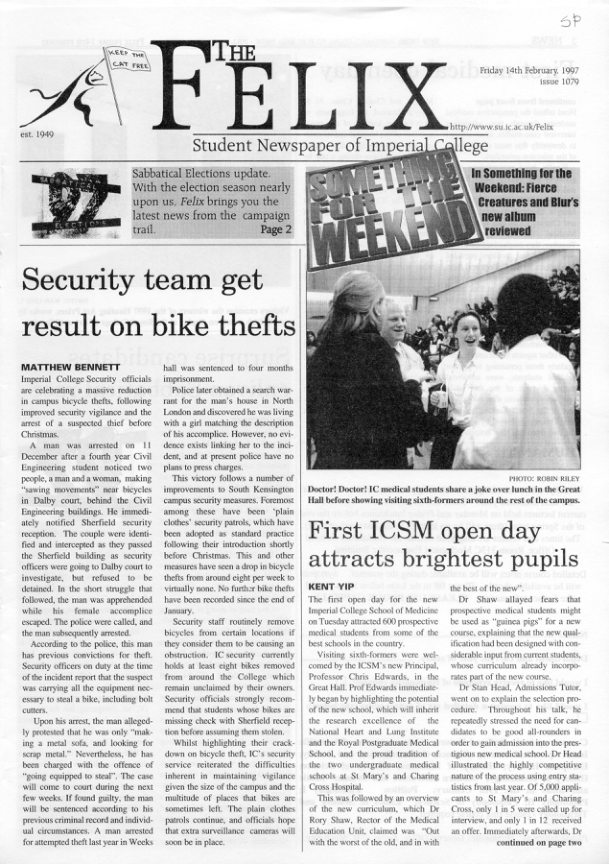Fair fares derailed by Underground privatisation
Speculation that London Underground is to be privatised has intensified this week, following a report that it may be sold whole to a single company. This might lead to fare increases and scotch plans to introduce cheaper fares for students.
An article in Monday’s edition of The Independent claims that the subterranean rail system could be sold off as a ‘job lot’, possibly as early as March, before the general election. London Underground has as yet made no official announcement regarding privatisation plans, although a spokesperson claims that the organisation has submitted a document to the Department of Transport outlining a number of approaches. The contents of the proposal remain confidential, and both sides have adopted a policy of silence.
London Underground operates tube services on behalf of London Transport, which has expressed its intention to remain neutral throughout the process. LT claims it wishes only to ensure that whoever buys the network maintains the correct safety and security measures.
Privatising the tube network, according to the Government, is expressly aimed at improving the service to customers (formerly passengers). However, projects that LT was hoping to carry out in the near future must now be shelved until a satisfactory outcome to the sell-off has been achieved. One these postponed projects is the refurbishment of stations at the southern end of the Northern Line. Although new trains will soon be introduced to the line, delays will remain as tracks and signalling will not be upgraded. Hidden costs such as these will have to be met by the network’s new owner.
Should privatisation be given the green light, the future of London Transport itself remains unclear. As the sole administrator of the capital’s public transport, LT is able to issue tickets and travelcards valid for both buses and trains. As yet, there is no guarantee that a private investor would continue this regime. Similarly, were the network to be divided up, it is unclear whether a ticket bought at a station owned by one company would be valid for travel on lines owned by another.
After the privatisation, London Transport will not continue to control any transport services. The organisation might survive in an advisory or regulatory capacity, possibly acting a consultant for the tube’s eventual owners.
Whoever buys London’s underground network will need to invest an estimated Ł1.2 billion immediately, to cover essential repairs and maintenance. The burden of such an investment could be lightened if the Government pours money into the system before selling, as it has in some previous privatisations. Paul Bates, University of London Union Welfare Officer, predicts that if a private buyer is forced to make a massive initial investment, the result may be a sharp increase in fares and increased hardship for students.
Speaking to Felix, Mr Bates explained that he "....cannot believe that anyone would want to buy the underground system. Shareholders would not get a return on such an under-invested scheme."
Believing that an increase in fares would hit students particularly hard, ULU has been exploring ways of obtaining discounts for its members. ULU’s President last year, Ghassan Karrian, attempted to negotiate a deal with London Transport in which University of London students would receive a 25% discount on tube fares. LT agreed to test the scheme and set up a pilot project for the students of Queen Mary’s and Westfield College. According to Paul Bates, London Underground’s imminent privatisation has derailed the scheme. It has been removed from ULU control and now faces an uncertain future.
A student representative at Queen Mary’s and Westfield College explained that the scheme had been very popular with students, but that it was "...down to London Transport whether or not it was successful."
London Transport believes that the long-term success of such a discount scheme could be guaranteed at the time of privatisation, by including it as a contractual obligation to be fulfiled by the network’s new owner or owners. Unfortunately, such a decision will be made during discussions between LT and the new buyer, where student interests are unlikely to be represented.





